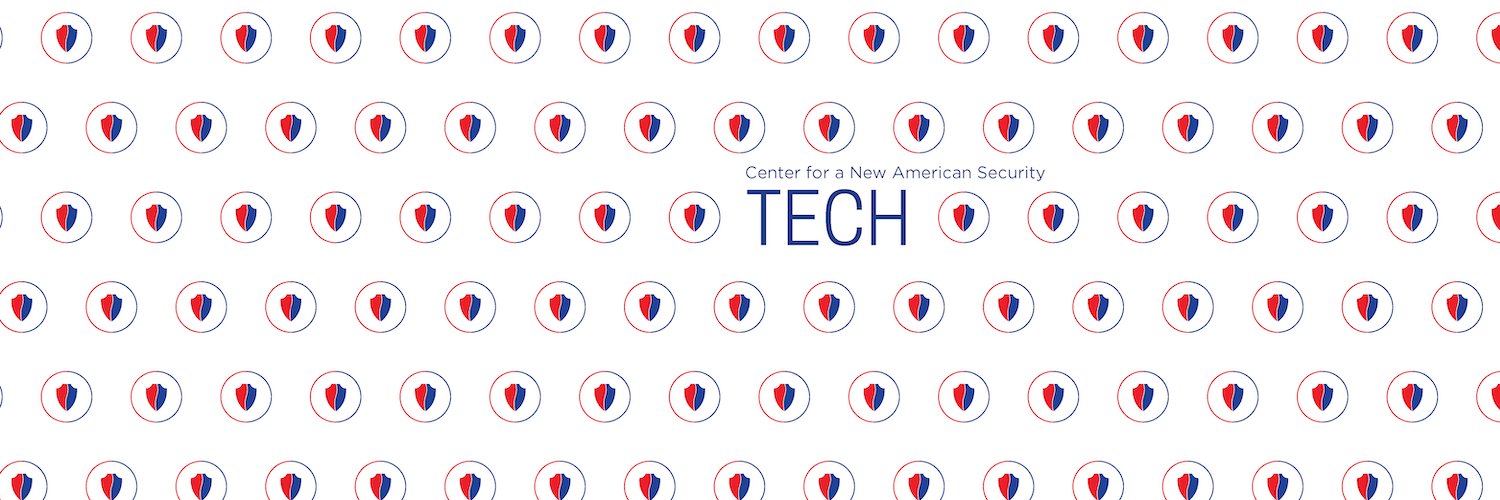
CNAS Technology and National Security Program
@CNAStech
Technology and National Security Program at @CNASdc. Researching AI, 5G, autonomous weapons, and digital freedom. CNAS does not take institutional positions.
Kenya's "Silicon Savannah" has emerged as a key front in the US-China tech competition. But is Washington paying attention? In a new report from me and @rubyscanlon, we outline how the US can counter China's Digital Silk Road based on direct field research in Kenya. 🇰🇪
Rising cyber threats in the Indo-Pacific demand newly ambitious cooperation between the US and its regional partners. But what does this entail? We'll dive in on Monday, 7/21 from 9-10a ET for a virtual event featuring experts from 🇰🇷🇯🇵🇹🇼🇵🇭 Register👇cnas.org/events/virtual…
Last year, I wrote a 100+ page thesis on China's AI industrial policy. It covers Beijing's spending across: (1) basic R&D, (2) chips, (3) B2G partnerships, and (4) traditional subsidies. Over the next few days, I'll break down the paper's findings, starting today with R&D.🧵
US policy should make it harder, not easier, for China to close the gap in the most critical technology of our times. The H20 isn’t the most powerful chip, but its memory capabilities make it essential for running today’s AI. This is a gift to China’s ambitions for AI adoption.
The @taipei_times covered our latest report on Cyber Crossroads in the Indo-Pacific, which outlines recs for both the US and Taiwan to improve cyberdefense and cooperation to meet rising aggression from the PRC. 🇹🇼🇺🇸
🚨 America's AI leadership stems from our powerful private sector, but federal R&D can drive the next wave of innovation in areas critical for national security and competitiveness. @CalebWithersDC and I identify where government investment can amplify private capital: 🧵
The Indo-Pacific cyber landscape has grown more volatile and dangerous than ever. How can Washington and its allies and partners meet rising threats to build a more secure, resilient future? 🚨In a new CNAS report out today, we take stock and chart a path forward.
Since 2022, Xi’s most frequent engagements (after Putin and Tokayev) have been with Brazil's Lula. As LATAM's economic heavyweight, Brazil warrants greater attention from its northern counterpart. Read how the US can more effectively engage in my and @bill_drexel's report 🔗⬇️
Secretary Lutnick, Sen. Mike Rounds, Palantir, Anthropic, Scale AI, and SemiAnalysis all think AI chip smuggling is a concern. But NVIDIA says there’s "no evidence" of smuggling. So, how big a deal is it actually? Here’s what we found when we looked into this at CNAS…
In a new piece for @ForeignPolicy, I argue that the US still lacks a compelling "promote" strategy to drive the diffusion of critical technologies like AI, even as China ups its game. I also outline key pieces of what a new model of American technology statecraft should entail.
To close out the #CNAS2025 National Security Conference: The Battle for Biopower: How the United States and China are Competing for Biotech Leadership 🎙️ Caitlin Frazer, @biotech_gov 🎙️ @vivekchil, @CNAStech
Delighted to have cohosted the Technical Innovations for AI Policy Conference by @CNASdc @farairesearch @JoinFAI and @RANDCorporation. Some of the great talks are now online 🧵
🎬 Technical Innovations for AI Policy wrapped this weekend with 200+ attendees and 30+ great speakers; highlights in video below 👇 We're also releasing our first 4 talk recordings from @AlexBores @hlntnr @MarkBeal @bradrcarson, 🔗s in 🧵.
Tune in at 4:30p ET today for my discussion with Caitlin Frazer, Executive Director of the NSCEB on the US-China competition for global biotech leadership. @biotech_gov #CNAS2025
My colleague @Constanza_MVB spent much of the past year deep in the weeds of quantum sensing. The result is this deeply researched report that details not only why US leadership in next-gen quantum sensing matters, but also how we can secure and extend America's edge. 🔥⬇️🔥
🧵1/ After months of research and dozens of expert interviews, I’m excited to share my new report with @CNASdc. I explore quantum sensing as a strategic opportunity to address pressing national security vulnerabilities while reinforcing America’s global quantum leadership.
🧵1/ After months of research and dozens of expert interviews, I’m excited to share my new report with @CNASdc. I explore quantum sensing as a strategic opportunity to address pressing national security vulnerabilities while reinforcing America’s global quantum leadership.
Massive AI chip deals with the UAE and KSA risk ceding America’s AI leadership. It’s pretty easy to see which nations provide a better buildout environment… 🤖The US edge is in its chips — concerning to see this advantage so readily relinquished.